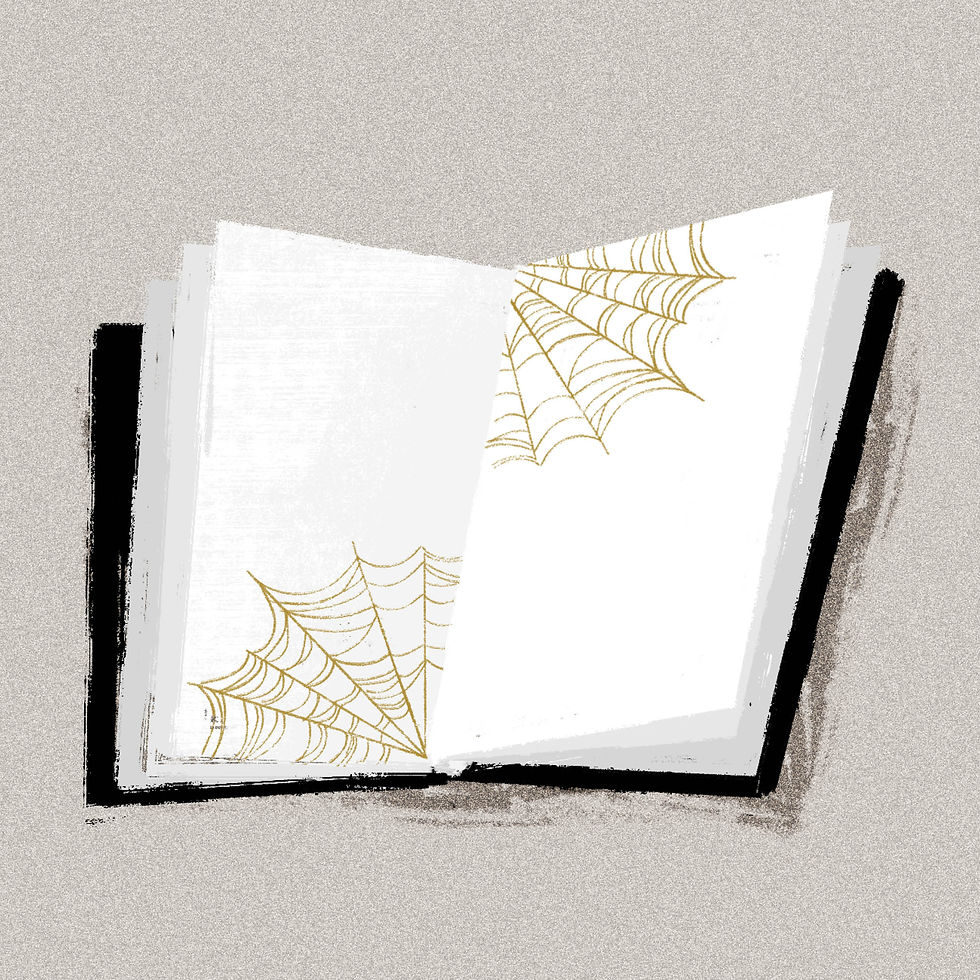- Lauren Hancock
- Jun 27, 2024
- 3 min read

Since you’re here, I guess you’d like to know a little about me and my design process. Let me break down the building blocks of my daily rituals, habitual thought patterns, and the paths a creative designer takes.
The Brief
Ah, the holy scripture of any design project. First, the client sends the brief. I read the brief. Then I read it again. And again and again, until it becomes a part of my soul. The brief is everything and everything is in the brief. I listen deeply. I read between the lines. The spaces turn into questions. Why are the spaces there? An oversight, or an opportunity, a vacuum to be filled by the work?
Research & Analysis
I immerse myself in information. Way too many tabs open (both figuratively and literally). For someone with a curious mind, this part feels super indulgent. Everything is a potential source of inspiration. The research might mean meeting with the client, investigating competitors, audiences or markets, examining other brands or the work of other designers, saving pins on Pinterest, reading articles, reports or essays, or going outside and looking at things in the real world. Where I can, I map the information in visual or spatial diagrams. Ultimately, connections have to be made for meaning to emerge, and to be able to document those connections helps me to look for patterns, resolve my thoughts, and gives me an immense sense of peace and wonder.
The Quote
You have to go a certain way into a project for a path to become visible, so you (and your client) can see where you’re heading. I tentatively scope out what the journey might be, and the resources needed to get there. Depending on the client, the quote might be an agreed upfront cost, or time-tracked by the hour. I don’t have a preference. I do feel strongly that designers shouldn’t work for free. It devalues the industry.
Idea Generation
When I’ve exhausted all the possible avenues for seeking out information, I let it sink in. This involves much staring into space and a complete inability to function as a human being in the real world. For this part, I exist only within the confines of the brief. The ideas begin somewhere between the mind, eye and hand. Drawing is important, and I also write a lot. Usually, words come before visuals for me, I’m quite form follows function. I need to know what it means before I can show you how it looks.

Production
At some point, you have to stop thinking about the work and start doing the work. This can be a tricky transition, like when you get up out of your warm bed to face the real world. It’s the hard part, the scary part. And later, hovering over that send button and wondering if this first draft you’re about to send your client is the work of a design genius or the ramblings of a daylight-deprived person. It’s usually somewhere in between.
Feedback
Feedback is so important. Feedback is the guiding hand that keeps you on track. It can be painful to hear, it can be wonderful to hear. Following is much dialogue, renegotiation, re-measuring against the brief, and reimagining of the destination. It’s a process, it’s not always linear, and that’s okay. My artwork is mostly (although not always) digital, and I keep it flexible in the knowledge that things can and usually do change.
Post-production
There, we did it. We arrived at the finish line with something delightful to show the audience. It's time to sit back and reflect on what a marvellously creative and productive thing has been accomplished. Seeing your work out there in the real world is especially gratifying. And if you’re lucky, you may get to do it all over again.
Some key insights, summarised:
My process is always and should always be changing and evolving.
Research is like taking a deep breath before you speak.
Creative inspiration doesn’t come from nothing; it’s working hard to make new connections between ideas.
Feedback, communication and collaboration are central to moving the process forward.
The experience of an intangible thought becoming a tangible outcome is one of the key things that drives me to keep making work.
Being a creative person can feel vulnerable and powerful at the same time.
Hopefully, you know me a little better now. I feel like I know myself a little better too. If you’d like to be a part of this magical process, please, email me (laurenhancock1929@gmail.com) so we can make something useful and beautiful.




